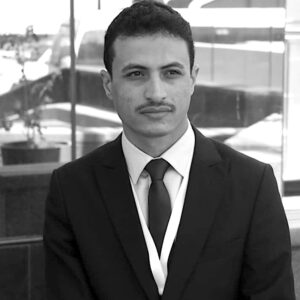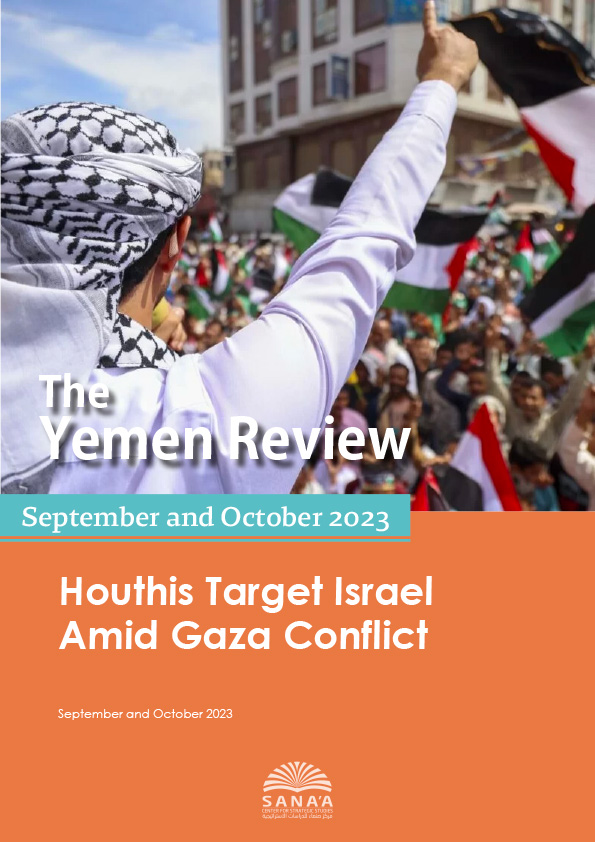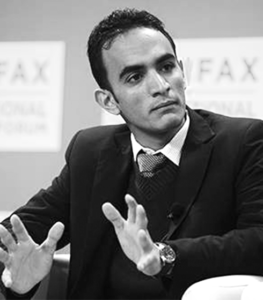Executive Summary
Military and Security
The Houthi group (Ansar Allah) claimed responsibility for a series of attempted missile and drone strikes on Israel. The Houthis have threatened to keep up the attacks as long as the Israeli military operation in Gaza continues. Four projectiles were intercepted by a US warship in the Red Sea, where the group has expanded its operations, and it could threaten shipping in the area in the future.
Hamas’ deadly incursion into Israel and the subsequent conflict has fueled fears of a broader conflagration across the Arab world, potentially drawing in Iran and the US. While this still appears unlikely, the Houthis’ involvement could yet provoke retaliatory strikes from Israel or the US. The conflict is also proving a boon for recruitment for Al-Qaeda in Yemen.
The Houthis staged a massive military parade on September 21 to celebrate the anniversary of their seizure of the capital in 2014. They then cracked down heavily on September 26 revolution celebrations, which mark the end of the Imamate and the beginning of republican rule. Thousands were reportedly arrested and detained, and a number of people were beaten for participation, as the event now carries symbolic importance as resistance against Houthi rule. Yemen has also seen nationwide demonstrations in support of the Palestinians over the course of October.
Two border incidents marked a rare resumption of violence between the Houthis and foreign members of the Saudi coalition. Five Bahraini soldiers were killed following a Houthi drone strike along the border on September 25, and four Saudi soldiers were killed in a raid one month later. There has been speculation that the incidents reflect internal dissent over progressing Saudi-Houthi peace talks.
Heavy fighting in Al-Dhalea has killed scores of fighters on both sides, though the frontlines have moved little. The renewed violence has been accompanied by the assassination and attempted assassination of local military leaders.
Politics and Diplomacy
A Houthi delegation made a long-awaited visit to Riyadh in mid-September as bilateral peace talks with Saudi Arabia continue to move forward. Both sides have pressed on despite recent border incidents and the Houthis’ attempted participation in the conflict in Gaza. Progress has reportedly been made on a number of thorny issues, including the payment of public sector salaries. The internationally recognized government remains excluded from the talks, and is expected to swallow whatever deal materializes. The loudest objections to this arrangement have come from the Southern Transitional Council (STC), which advocates secession. The attempted Houthi strikes on Israel could complicate the announcement of a peace deal, particularly if they provoke a retaliatory response.
Presidential Leadership Council (PLC) chief Rashad al-Alimi addressed the UN General Assembly in New York in September, where he noted the challenges his government faces from the war and an ongoing economic crisis. Al-Alimi was accompanied by STC chief Aiderous al-Zubaidi, though neither appeared happy with the arrangement. The PLC remains riven by division, and the UAE-backed Zubaidi represents perhaps its most powerful faction.
A security operation in Hadramawt’s capital city of Mukalla has stoked divisions in the governorate, which remains contested between Islah and the STC and their sympathetic local factions. More than twenty people were arrested in raids on civilian homes, provoking a furious response. The Hadramawt Tribal Alliance demanded that the Emirati-backed forces that conducted the operation be held accountable for violations, which drew further recriminations from local STC leadership.
International aid organization Save the Children announced that their director of security Hisham al-Hakimi had died in a Houthi prison after being kidnapped by the group six weeks prior. The organization had reportedly been in contact with his captors but to no avail. Allegations have since surfaced that the Al-Hakimi had been denounced to Houthi authorities by a colleague, who informed them that he objected to restrictions imposed by the group and sought to have projects relocated. Save the Children is conducting an investigation into the incident, and briefly suspended its operations in the north.
Economy
Prime Minister Maeen Abdelmalek Saaed denied allegations of corruption against his government laid out by a parliamentary fact-finding committee. Saaed said the committee’s report was politically motivated and reflected the partisan grievances of special interest groups. The government has faced criticism over its handling of the country’s acute economic crisis, precipitated by a Houthi blockade on oil exports last fall. Without its largest source of revenue, the government has been unable to afford the provision of electricity, and may soon be unable to pay public sector salaries. It has also faced recent criticism for its handling of a telecommunications deal with an Emirati company.
The STC has also criticized the handling of electricity provision, accusing the government and central bank of mismanagement. The interim capital of Aden, controlled by the STC, is currently receiving as few as two hours of electricity a day, as power stations shut down due to lack of fuel. The blackouts have fueled protests in Aden and other governorates.
The Houthi-controlled ports of Hudaydah have witnessed a more than 50 percent increase in commercial activity. The Saudi coalition has eased controls on shipping into the north, and the Houthis have actively sought to divert shipping by coercing and threatening traders. The result has been a shift of customs revenues to the Houthis, driving the government closer to insolvency. The Houthis have also imposed new restrictions on trucks that service the ports, perhaps in an attempt to monopolize the distribution of imports.
The value of new rials, the currency used in government-controlled areas, declined 5 percent in October, following smaller drops in August and September. The fall is almost certainly informed by the government’s rapidly dwindling FX reserves. Promised Saudi support has failed to materialize, and the central bank has suspended FX auctions that finance the purchase of imported foodstuffs.
The government-controlled Central Bank in Aden announced the first auction of one-year government bonds. Only 28.5 percent were sold, with an average return of 17.7 percent. The central bank also announced that it had successfully joined the Arab Regional Payment System (BUNA), and that it has issued a public tender for the audit of its accounts and data for the past three years.
This issue of the Yemen Review was prepared by (in alphabetical order): Murad Al-Arefi, Ryan Bailey, William Clough, Casey Coombs, Yasmeen Al-Eryani, Magnus Fitz, Hamza Al-Hammadi, Andrew Hammond, Abdulghani Al-Iryani, Yazeed Al-Jeddawy, Maged Al-Madhaji, Elham Omar, Hussam Radman, Ghaidaa Al-Rashidy, Miriam Saleh, Maysaa Shuja Al-Deen, Lara Uhlenhaut, Ned Whalley, and Wadhah Al-Awlaqi.
The Yemen Review is a monthly publication produced by the Sana’a Center for Strategic Studies. Launched in June 2016 as Yemen at the UN, it aims to identify and assess current diplomatic, economic, political, military, security, humanitarian, and human rights developments related to Yemen.
In producing The Yemen Review, Sana’a Center staff throughout Yemen and around the world gather information, conduct research, and hold private meetings with local, regional, and international stakeholders in order to analyze domestic and international developments.
This series is designed to provide readers with contextualized insight into the country’s most important ongoing issues.



 اقرأ المحتوى باللغة العربية
اقرأ المحتوى باللغة العربية



